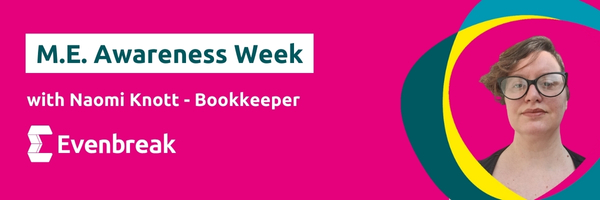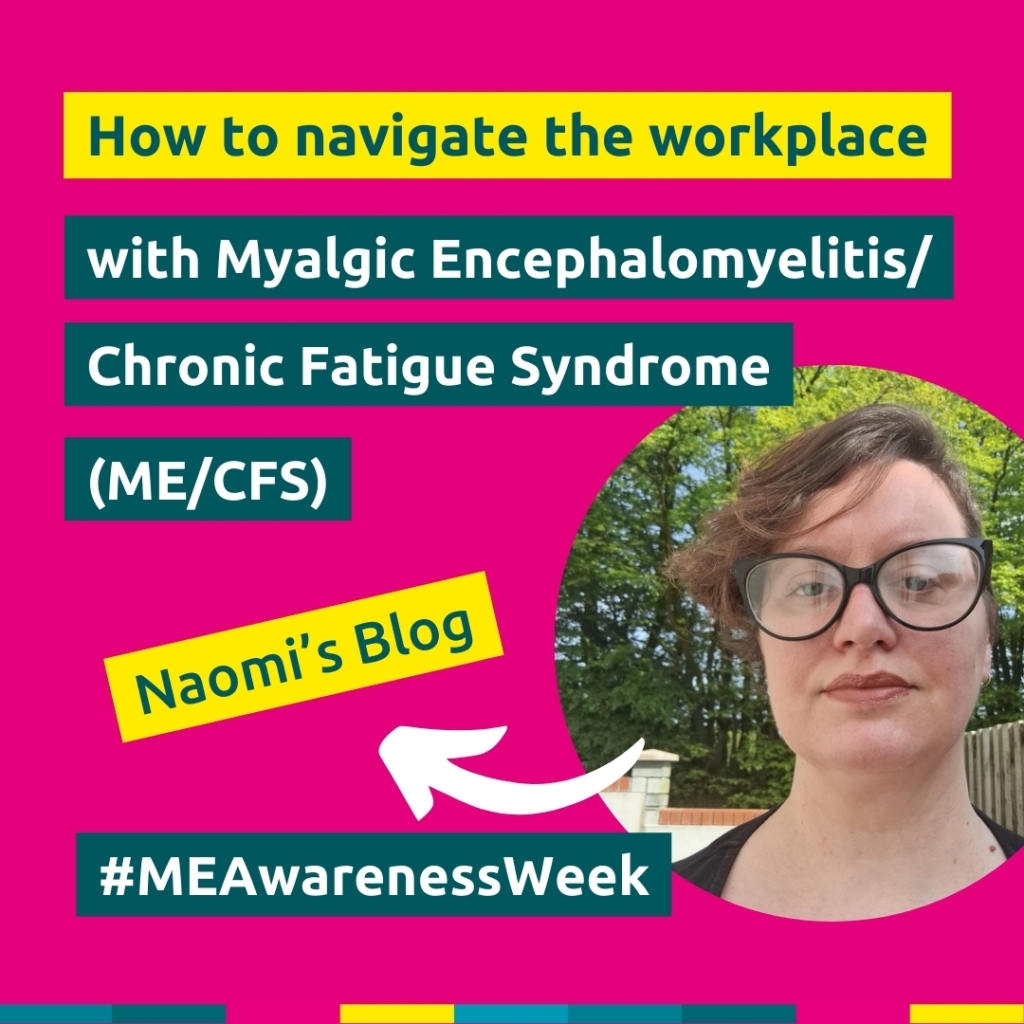
Trigger warning, this article mentions information regarding suicide, this can be found at the bottom of the ‘What is ME/CFS’ section.
Evenbreak’s Bookkeeper, Naomi Knott, shares her journey with Myalgic Encephalomyelitis/Chronic Fatigue Syndrome (ME/CFS) to mark International M.E Awareness Day on 12th of May, 2024. Naomi provides a personal account, along with advice for both candidates and employers.
My ME/CFS Journey
In my 30’s I realised something was very wrong with my health. I had never been the most energetic of people and I always found activities to be hard and more challenging than I thought was normal. Doctors and myself put it down to the fact that I had suffered with depression for most of my life. But after my last breakdown I found I did not recover fully and so after going back and forth from the doctors for some time (2 years) I was diagnosed with ME/CFS. And after speaking to a specialist, I was told I’d probably had ME/CFS since I was maybe 12 or even younger.
What followed was a long and frustrating journey into discovering what this was, and how to cope with or treat this condition. I will tell you now, there is so much more research to be achieved. I have found in my research for this article that there are many theories as to what causes the condition and what can be considered acceptable treatments. There are also several sites with outdated information, so caution is needed.
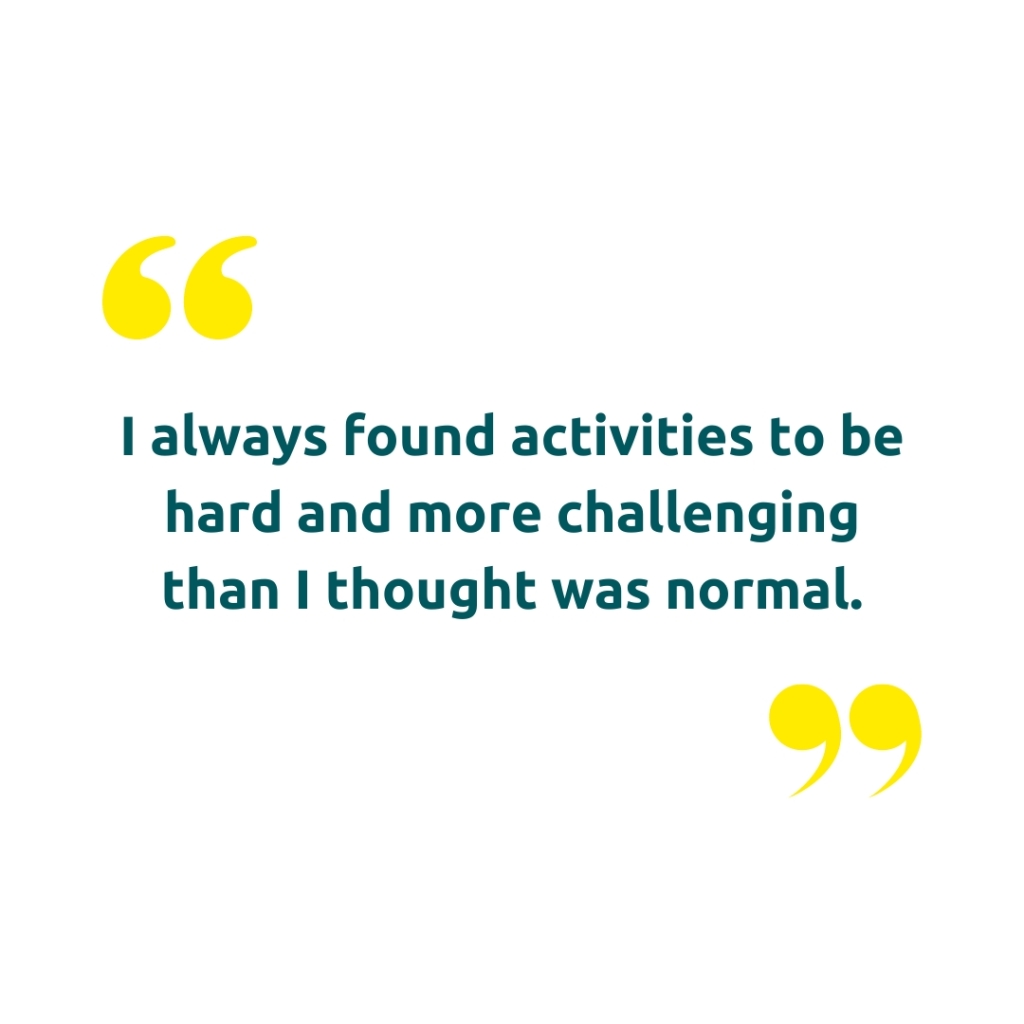
What is ME/CFS
Myalgic Encephalomyelitis/Chronic Fatigue Syndrome (ME/CFS) is a disabling and complex illness. People with ME/CFS have overwhelming fatigue that is not improved by rest, and may get worse after any activity, whether it’s physical or mental. This symptom is known as post-exertional malaise (PEM). Other symptoms can include problems with sleep, thinking and concentrating, pain, and dizziness. At least one in four ME/CFS patients is bed- or house-bound for long periods during their illness. It is believed by many that Florence Nightingale had the condition, which is why she spent a great deal of time in bed in later life.
There is no cure, yet. What is known, is that there is a likely chance of having comorbidities, such as Fibromyalgia and other autoimmune conditions. Unfortunately, due to many reasons, suicide is a bigger risk factor for people with ME/CFS. Please, if you are feeling this way or are concerned about someone you know, let them know they are not alone. Links to suicide helplines are at the end of this article.
People with ME/CFS have different needs and different methods of coping. I personally use Ju-Jit-Snooze! Which is what I call it when I rest on a regular basis. It can feel like you are not trying when it is one of the best things we can do.
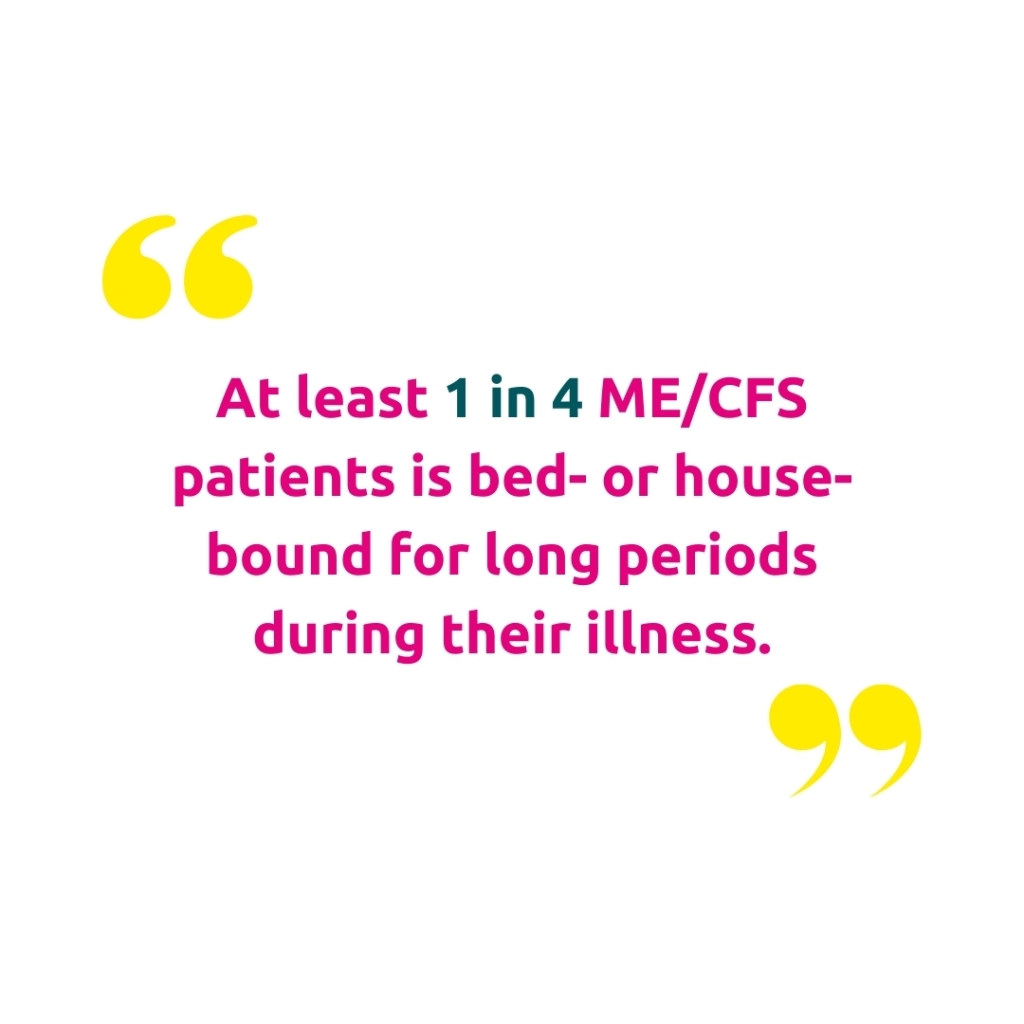
Candidates
Please remember it can take a long time to find out what you can do on a consistent basis.
You could ask your employer about reasonable/workplace adjustments such as:
- Longer or more breaks
- Environmental changes to what you find comfortable i.e lighting, sound, temperature
- Is it possible to work from home or get help with transportation?
- Adjusted/flexible hours
- Patience and understanding, as we will make mistakes when we get brain fog, but that is OK, we are all fallible.
Remember. We are so much more than our barriers. We are still the person we were before or the person we thought we were meant to be. It is still possible for some of us to enjoy a work/life balance. We just need to adjust the scales a bit more.
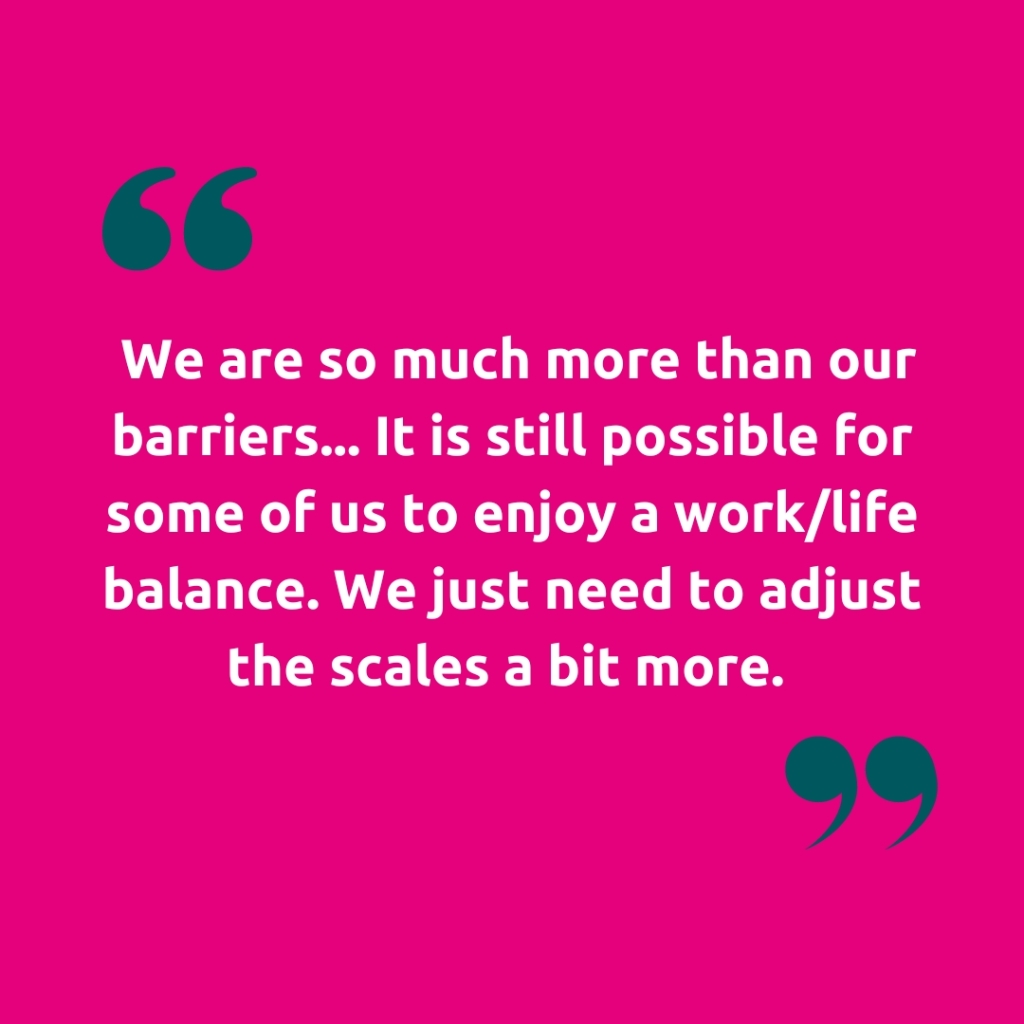
Employers
So, you are thinking of hiring someone with ME/CFS. Nice! Have I got good news for you…
We are really good at:
- Prioritising our workload
- Problem solving
- Finding easier work methods
- And much more!!
All we need is for you to ask us what we might need to work and thrive, and make some workplace/reasonable adjustments as mentioned above.
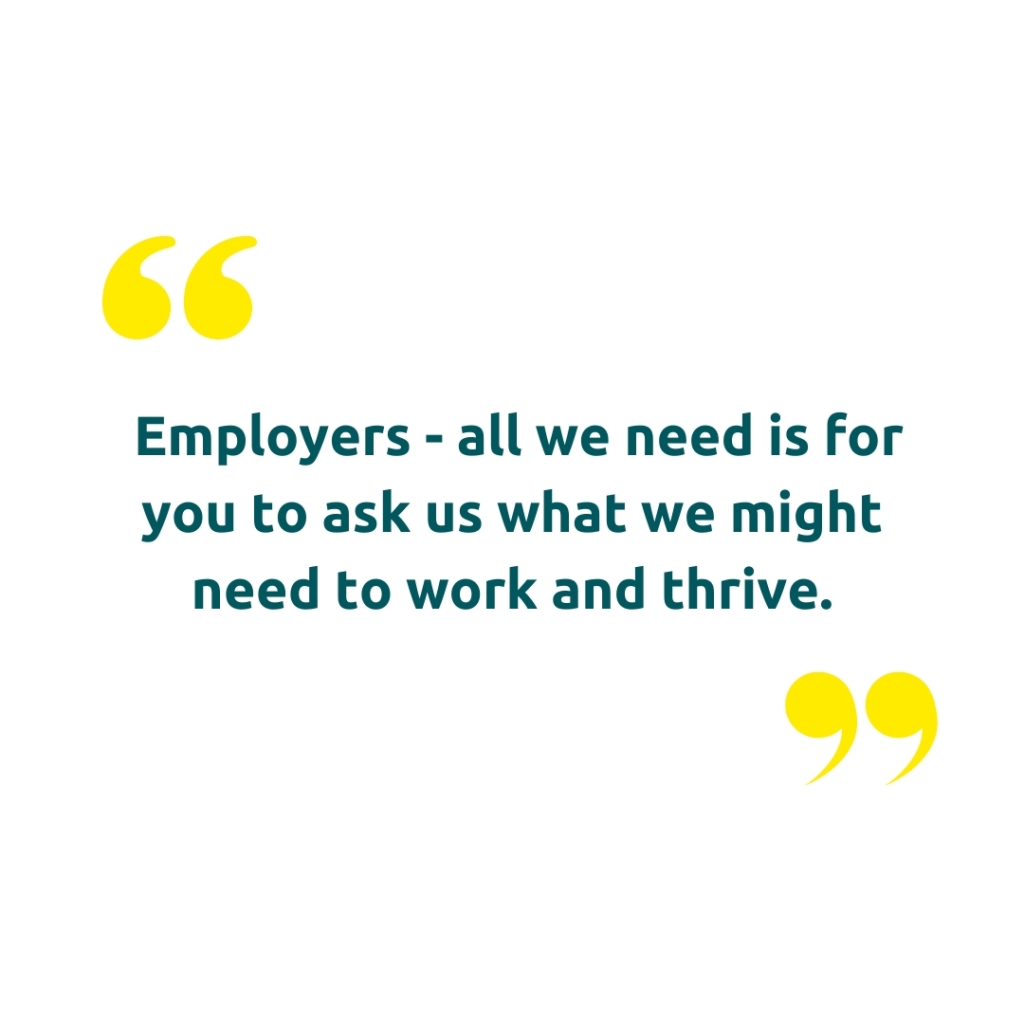
How Evenbreak can help
We at Evenbreak have many resources available to both candidates and employers:
- Our Job Board, where disabled candidates can find roles from inclusive employers
- An abundance of resources on our Career Hive for disabled candidates
- Free Career Coaching for disabled candidates
- Tailored Training and Consultancy for employers.
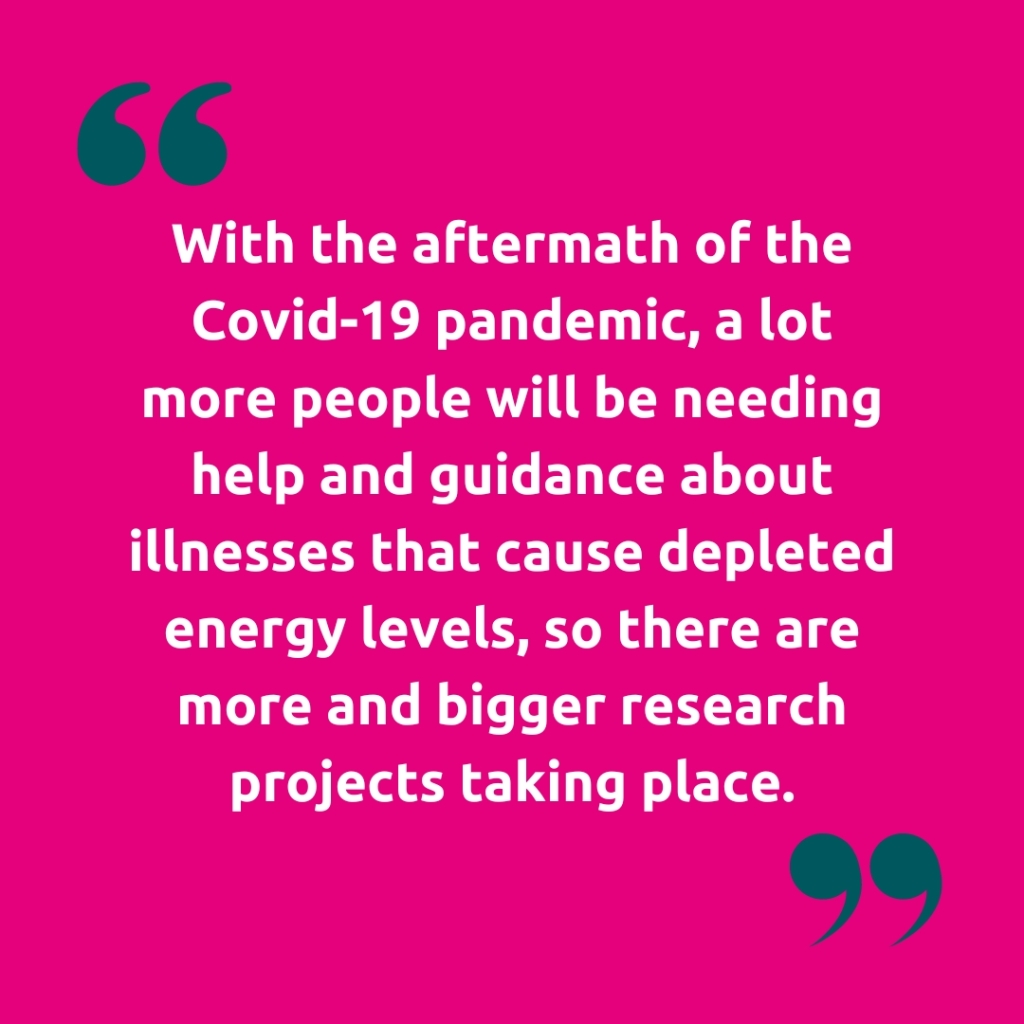
I am hopeful for the future with ME/CFS.
With the aftermath of the Covid-19 pandemic, a lot more people will be needing help and guidance about illnesses that cause depleted energy levels, so there are more and bigger research projects taking place. I have even been lucky enough to take part in one. In time, I believe there will be more scientific breakthroughs, more understanding of what causes ME/CFS, more treatments available, and maybe even a cure.
Until then hold on, we got this.
Naomi Knott, Bookkeeper
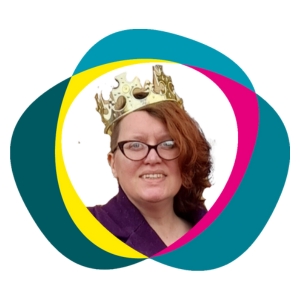
Here are some useful sites to help guide and inform:
Suicide help centres/lines:
- Samaritans, https://www.samaritans.org/, Tel 116 123
- Silence of suicide, https://sossilenceofsuicide.org/, Tel 08081151505
- 988 Suicide & Crisis Lifeline, https://www.samhsa.gov/find-help/988, United States
